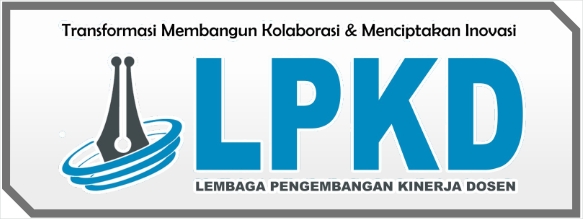Traditional Engklek Game for Counting Skills of Children Aged 5-6 Years in Jambu Village Kayan Hilir District
DOI:
https://doi.org/10.62238/chatra.v3i2.217Keywords:
traditional games, engklek, numeracy, early childhood, contextual learningAbstract
Purpose – This study was conducted to explore the role of the traditional game engklek in developing numeracy skills among children aged 5–6 years. The topic is relevant as early childhood education should align with children's developmental characteristics, particularly learning through play. The research argues that traditional games, beyond entertainment, have significant educational value when integrated into early learning practices.
Design/methods/approach – This research employed a qualitative approach with a case study design. Data were collected through participant observation, in-depth interviews with children and adult informants, and documentation of play activities. Thematic and descriptive analysis was conducted, supported by triangulation to ensure data validity
Findings – The results revealed that the engklek game effectively stimulates children's numeracy skills, especially in recognizing numerical sequences, understanding quantity concepts, and identifying number symbols through enjoyable, tangible experiences. The game supports active learning embedded within the children’s sociocultural context
Research implications/limitations – The study was limited by a narrow participant scope and focused on a single form of traditional game, thus not encompassing the diversity of local play practices. Nevertheless, the findings suggest the importance of revitalizing traditional games as part of a contextual and holistic approach to early childhood education.
References
Abdurraheem, H., Muritala, & Suleiman, I. (2024). Exploring the Psycholinguistic Effects of Ludo and Ayo on Language Development and Cognition. Global Research Journal of Social Sciences and Management., 02(02), 140–149. https://doi.org/10.55306/grjssm.2024.2207
Alvisari, D., Lah, Y. C., & Tun, H. (2024). The Effectiveness of The Traditional Game Congklak in Developing Children’s Cognitiveness at Kindergarten. Journal of Basic Education Research. https://doi.org/10.37251/jber.v4i3.893
Apriyanda, A., Lubis, N. K. M., Sinaga, N. A., Nadeak, A. C., & Siddik, F. (2024). Pengaruh Olahraga Permainan Tradisional Congklak Terhadap Perkembangan Psikomotorik dan Kognitif Siswa Sekolah Dasar. Jurnal Sadewa, 2(4), 201–210. https://doi.org/10.61132/sadewa.v2i4.1289
Desvarosa, E. (2016). PENERAPAN PERMAINAN TRADISIONAL ENGKLEK DALAM MENINGKATKAN KEMAMPUAN KOGNITIF ANAK USIA 5-6 TAHUN DI TK BINA GUNA. Jurnal Handayani, 6(1). https://doi.org/10.24114/jh.v6i1.5042
Hasan, B., & Husein, M. (2024). Traditional Games as a Means of Cognitive Stimulation: An Analysis of Child Development: A Systematica Review. International Journal of Multidisciplinary Research and Analysis, 07(10). https://doi.org/10.47191/ijmra/v7-i10-28
Hidayah, F. N., & Retnawati, H. (2024). The Impact of Numeracy on Early Childhood Development: A Meta-Analysis of Experimental Studies. Golden Age: Jurnal Ilmiah Tumbuh Kembang Anak Usia Dini, 9(3), 559–573. https://doi.org/10.14421/jga.2024.93-15
Khasanah, I., & Purnamasari, I. (2023). Role-Playing Methods: Efforts to Stimulate the Development of Early Childhood Numeracy Literacy. Journal of Social Research, 2(4), 1074–1078. https://doi.org/10.55324/josr.v2i4.776
Lucas, F. M. M. (2017). The Game as an Early Childhood Learning Resource for Intercultural Education. Procedia - Social and Behavioral Sciences, 237, 908–913. https://doi.org/10.1016/j.sbspro.2017.02.127
Masykura Setiadi, F., Maryati, S., & Mubharokkh, A. S. (2024). Analisis Dampak Penggunaan Gadget Terhadap Perkembangan Psikologis dan Keagamaan Anak Usia Dini (TK dan SD) dalam Perspektif Pendidikan Agama Islam. Muaddib: Islamic Education Journal, 7(1), 1–11. https://doi.org/10.19109/muaddib.v7i1.24432
Nasution, A. F. (2023). Metode Penelitian Kualitatif . CV. Harfa Creative.
Ndlovu, B. Ntombizodwa., Okeke, C. I. O., Nhase, Z., Ugwuanyi, C. S. U. C. S., Okeke, C. C., & Ede, M. O. (2023). Impact of play-based learning on the development of children in mobile early childhood care and education centres. International Journal of Research In Business and Social Science, 12(3), 432–440. https://doi.org/10.20525/ijrbs.v12i3.2358
Nugraha, A., & Nuriadin, I. (2025). The Development of Children’s Early Numeracy Skills in The Piaget’s Preoperational Stage. Mathema, 7(1), 42. https://doi.org/10.33365/jm.v7i1.4484
Pertiwi, D. A., Fitroh, S. F., & Mayangsari, D. (2018). Pengaruh Permainan Tradisional Engklek Terhadap Perkembangan Kognitif Anak Usia 5-6 Tahun. 5(2), 86–100. https://doi.org/10.21107/PGPAUDTRUNOJOYO.V5I2.4883
pradhana, K. pahyu, Azizah, A. N. I., Husna, N., Sauqi, Q., Sauqi, S., & Hanline, M. F. (2024). Application of Traditional Dakon Games in Improving Cognitive Abilities in Early Childhood. Zuriah, 2(2), 54–60. https://doi.org/10.55210/8c2t2t18
Sugiyono. (2019). Metode Penelitian Kuantitatif, Kualitatif, dan R&D . CV Alvabeta.
Survia, D., & Mulanirum, D. (2023). Upaya Meningkatkan Kemampuan Mengenal Angka 1-10 Melalui Media Bermain Kartu Angka Pada Anak Usia Dini. Al Tahdzib: Jurnal Pendidikan Islam Anak Usia Dini, 2(2), 103–111. https://doi.org/10.54150/altahdzib.v2i2.249
Usman, M., & Yusuf, N. Y. N. (2022). The Utilization of Traditional Games for Early Childhood Development. Proceedings of International Conference on Multidiciplinary Research, 4(1), 146–152. https://doi.org/10.32672/pic-mr.v4i1.3761
Winnuly, Hikmawati, L., & Sari, A. M. M. (2024). Pembelajaran Numerasi Berbasis Potensi Lokal Pada Anak Usia Dini. Deleted Journal, 1(2), 80–92. https://doi.org/10.30822/arsen.v1i2.2971
Yean, F. J., & Ngadni, I. (2024). Play-Based Learning in Malaysian Early Childhood Education: A Study of Diploma Students’ Perspectives and Challenges. International Journal of Academic Research in Progressive Education and Development, 13(4). https://doi.org/10.6007/ijarped/v13-i4/23143
Downloads
Published
Issue
Section
License
Copyright (c) 2025 Siska Sumarni (Author)

This work is licensed under a Creative Commons Attribution-ShareAlike 4.0 International License.













